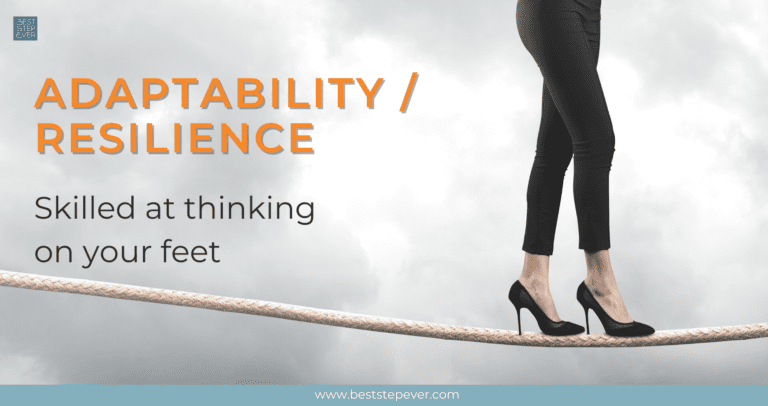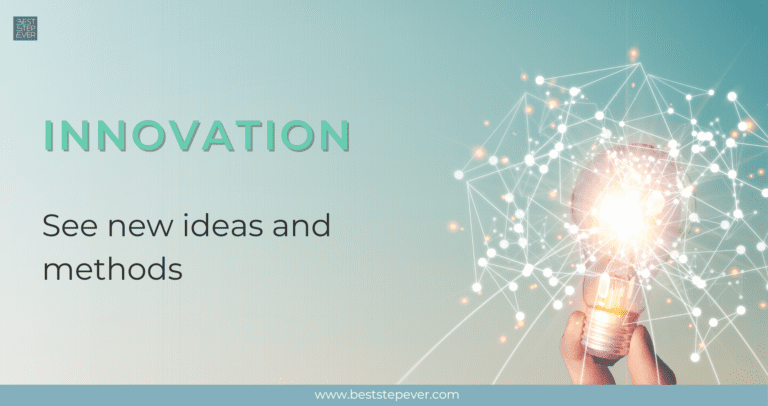Are you and your workforce prepared with future-ready meta skills needed for in-demand jobs in four of the fastest-growing job sectors?
Look around you. There’s a major job shift going on. High-tech automations are swallowing many routine jobs. But simultaneously the creation of new jobs, which capitalize on advanced in technology, is exploding. And existing jobs are morphing into something very different to what they looked like this time last year.
The way in which we interact with machines, and how labour is divided between humans and machines, is the driving force behind these huge shifts in the jobs of yesterday and the jobs of tomorrow.
Let’s unpack four categories of the fastest-growing jobs out there. And let’s dig a bit deeper to uncover the future-ready meta skills that you’ll need to build if you want to ride the roller-coaster called the future of work.
SALES AND MARKETING future-ready meta skills
Anything to do with positioning, promoting, and selling a product or service is in demand.
2021 broke all records in the United States for the registration of new start-ups. In Europe, funding for start-ups was nearly three times the capital raised in 2022, at a record-breaking USD 121 billion.
And each of those start-ups need sales and marketing staff to launch their business and generate income.
And guess where the big money is? Pharmaceutical sales people still tend to out-earn their counterparts in other industries, but they may need to step aside. Salespeople in the technology space are starting to command top dollar, particularly in B2B (business to business) positions.
Marketing has seen a huge increase in new types of jobs. Witness the rise of digital marketing, content marketing, copywriting, web design, SEO (search engine optimization) specialists, video editing, social media management and influencers.
Let’s look at three underlying soft skills that are essential for many sales and marketing jobs.
a) Ability to influence and persuade others

A high degree of emotional intelligence is called for. The best performing salespeople are adept at reading others, uncovering their motivation, and pushing the right triggers to get to “yes”. They’re interpersonally skilled and very adept at building relationships.
Marketers are equally persuasive in a more indirect way. They weave the magic and tell a compelling story that brings others along with them.
Storytelling has recently emerged as a distinct skill to capture the minds and hearts of people. By walking others through an enthralling path aimed at a clear destination.
b) Adaptability / resilience

In sales and marketing positions you need to think on your feet. And embrace constant change. Just as you think you’re making headway, an innovative move by a competitor can take away all your gains. A change in the environment can overturn the headway you’ve made.
As the external environment shifts and changes, you need to have the adaptability and resilience to reshape your message and reposition your product or service. And you’re not likely to have the luxury of time to think things through.
The best marketers are quick to capitalize on current events and use them to the advantage of their product or service. It shows that they’re on top of their game and outwitting the rest in the race to get their offering to top of mind.
c) Creativity

Salespeople need to be creative in finding ways to reach and persuade their customers in a way that’s different to their competition.
Marketing people need to come up with a constant flow of new ideas to position and promote their product or service to the right people. It needs to be different, Unique. Something that sets the service or product apart and clearly communicates its benefits. And that’s not easy!
BUSINESS AND PROJECT MANAGEMENT
Business management is all about taking a leading role in driving a business forward. Project management is all about managing a complex landscape to deliver clear results within set timelines.
Both these jobs rely heavily on getting work done through others.
As the world of work gets more complex, greater demands are made on business and project managers. And there’s simply not enough talent. And these are not skills that can be learnt overnight. It takes practice and experience to develop this skillset.
Global HR consulting firm Korn Ferry predicts a looming leadership shortage. A recent survey conducted amongst 1000 HR professionals indicated that 70% of those surveyed felt that their organization does not have the right people on board to guide the company’s future.
What are the critical future-ready meta skills or power skills that business and project managers need?
a) Strategic thinking

People who are good at strategic thinking focus on a long-term goal and then plan specific actions to get to that goal. And along the way they take account of changing conditions and adjust their plans accordingly.
Grandmaster chess player Savielly Tartakower says it best, “Tactics is knowing what to do when there is something to do. Strategy is knowing what to do when there is nothing to do”.
Business managers are required to strategize how best to meet the company’s longer-term objectives. This involves planning and scenario setting.
Where-as a project manager’s scope is more limited, nevertheless they need to apply the same thinking to achieve their end result. And juggle resources to meet that goal.
Strategic thinking can be taught. Go to this BestStepEver blog on career stallers to find out the fix for developing bigger picture thinking.
b) Leading others

Sure, some leaders are born. But most leaders are made. They learn their craft. They experiment. They find out what works and what doesn’t. Then they start to do more of the stuff that gets them results. And they drop the stuff that doesn’t get them anywhere.
Problem is, leadership is hard work. And not everyone’s up for it. Some potential leaders get put off very quickly when they’re promoted to team leader positions but aren’t given the support they need to develop their skills in leading and managing others. One or two bad experiences, and they decide that it’s far easier to be responsible only for their own output and not for the output of others. And this talent gets lost to the business world.
That’s one of many reasons why there’s such a shortage of skilled leaders at all corporate levels. Not enough time and money is being invested in growing the leaders of the future.
Of course, the fix is simple. All businesses should be active in building their leadership pipeline as an ongoing part of the business cycle. Growing internal talent is so much more beneficial than always looking to the external environment to meet the need.
c) Problem-solving

Hands up if you’ve ever been taught problem-solving in a formal setting. This would involve steps such as:
| Learning ways to analyze what the problem is. | Doing further investigation to uncover hidden causes. | Developing a range of possible solutions to evaluate against each other. | Applying criteria to arrive at a decision. |
Whenever I’ve asked this question in a public forum, very few hands go up. Mostly we learn problem-solving by trial and error.
As the world gets more VUCA (volatile, uncertain, complex and ambiguous) and more BANI (brittle, anxious, non-linear and incomprehensible), the skill of problem-solving becomes highly sought after. People who are good at solving complex problems are going to own the future. The payback will be huge.
ANYTHING TECHNOLOGICAL
Our world today is largely technology and data-driven. This has led to the rise and rise of tech positions. Here are some of the best paying IT jobs in technology for 2022: Data Scientist, Artificial Intelligence Engineer, DevOps Engineer, Software Architect, Big Data Engineer, Internet of Things (IoT) Solutions Architect, Full Stack Developer, Blockchain Engineer.
Most of us would have trouble describing a typical day in their work life! Nevertheless, these are some essential skills that these computer nerds need:
a) Analysis

Analysis is analysis, right?
Wrong! Let’s break it down a bit to see what lies beneath the surface of skilled analysis.
Here are some of the underlying requirements to be good at technological analysis:
- Able to detect patterns and make connections.
- View complex problems from different angles.
- Collect large sets of data from multiple sources.
- Know where to dig and what to discard as irrelevant.
- Validate data for accuracy, uniformity, relevance.
- Observe and interpret data.
- Visualize and communicate insights.
- Draw sound conclusions.
That’s a lot of deep thinking required! People with the relevant technical skills who are also good at in-depth analysis are very much in demand and the need is growing.
b) Tenacity

Most jobs in technology require a far degree of persistence. Complex issues need complex solutions, and the answer is mostly not obvious.
Take your computer mouse for example. It’s not working. First check you’ll probably make is if it needs a new battery. No? Then next you might plug it out and in to check that it’s connecting properly. If that doesn’t work, you may try a second mouse. If mouse number 2 doesn’t work, you know that it’s probably a software issue. So you’ll probably go to Settings on your laptop and take things from there. And so on and so on.
And that’s a really basic issue. Now imagine you’re a software architect and you’ve come across a problem that neither you, nor any of your colleagues, have come across before. A Google search is certainly not going to fix it. It could take weeks or months of intense determination to solve this issue. And along the way you’ll go down plenty of paths whose only role is to show you that you’re on the wrong path.
The ability to persevere until the end is a fundamental soft skill for anyone working in a technological field.
c) Continuous learning

Have you ever come across the half-life of knowledge?
It refers to the number of years for half the information or knowledge available in a field of study to become redundant or overtaken by new information.
And guess which sector leads the pack when it comes to half-lives? Yes, that would be anything in the technology field. That’s why a key attribute for people in this field is the ability to learn continuously, both on the fly and more formally. A substantial percentage of time is taken up just by keeping up to date with new developments.
People in technology professions become very smart and efficient learners. They have to! They make it their business to learn all the time from a variety of sources: tech forums, colleagues, research, you name it. Their ears and eyes are everywhere.
We can all learn from this. Information that is of value to us flows around us constantly. The better we get at picking out the gems from the “noise” the smarter we become as learners. The ability to learn continuously is probably one of the most under-rated of future-ready skills.
GREEN ECONOMY
Wikepedia offers one of the most concise definitions of the green economy: an economy that aims to reduce environmental risks and ecological scarcities, and that aims for sustainable development without degrading the environment.
The green economy is growing exponentially and is absorbing much new talent, according to the World Economic Forum.
LinkedIn's global green skills report list the following top in-demand hard skills that are required: sustainable development, renewable energy generation, environmental policy, auditing and remediation, ecosystem management and pollution prevention.
But what are the most important soft skills, or future-ready meta skills, that underpin this rapidly growing field? Here are three that play a critical role in the effectiveness of people working in the green economy.
a) Curiosity

Really? Curiosity?
Yes! If you seek positive change in the world, a healthy dose of curiosity opens your eyes to unknown possibilities. And if you’re working in a field that’s aiming to make the world a better place, the more open you are to using unconventional approaches and exploring strange solutions the better.
Professor Fransesca Gino makes the business case for curiosity in the Harvard Business Review and provides some great ideas to stimulate curiosity in the workplace.
And did you know that curiosity boosts work performance? Here's the evidence.
b) Innovation

Innovation is about introducing new ideas and methods. It’s about implementing something not done before and seeing it reap the benefits.
Now innovation doesn’t have to be about reinventing the wheel. It can also mean building a smarter wheel.
The ability to generate and bring innovative solutions to the table is an important skill for people working in the green economy. It’s a field that’s wide open to new ways of doing things in a sustainable manner.
There are different degrees of innovation, and the green economy is very receptive to all three. Incremental innovation refers to improvements to existing processes. Disruptive or radical innovation is all about substantial changes or completely new ways of doing things.
People with the skills to think outside the box to imagine a sustainable future are essential for the green economy to make headway.
c) Communication

The green economy needs ever increasing numbers of people to advocate for change. To change mindsets from “nice to have” to “must have”.
There are three areas in which communication is very needed:
1. To effectively communicate the risks and dangers associated with current patterns of consumption.
2. To build acceptance for new ways of doing things to build a more sustainable future.
3. To build collaborative models for future changes which are likely to be disruptive in the short term.
The power of communication lies in framing the message for the receiver’s ears. It’s not about enforcing the viewpoint of the sender. It’s about getting in the mind of the receiver and tailoring the communication to meet their needs.
Highly effective and persuasive communicators are needed across the green economy to give strength to their messages and solutions.
IN CONCLUSION
These four categories are talent-hungry: sales and marketing, business and project management, anything technological and the green economy.
Each of these categories requires people with specific future-ready meta skills to drive the future.
How ready are you? How ready is your workforce? The best time to build the skills for tomorrow is now. Because the future is knocking on the door. Businesses that aren’t ready, won’t survive.


